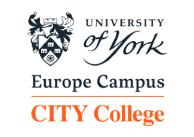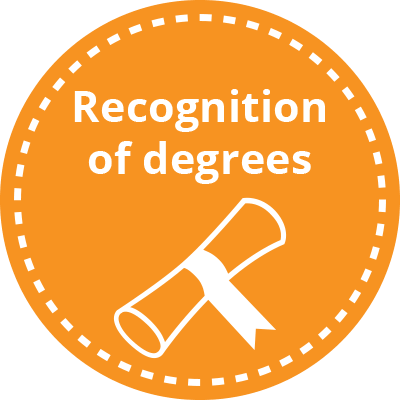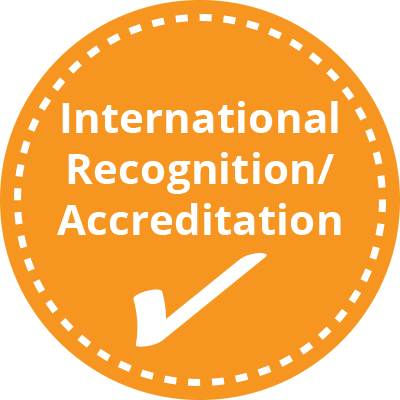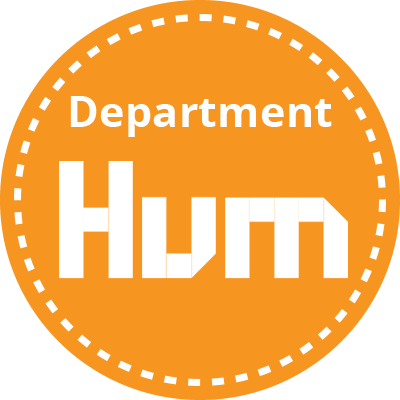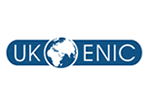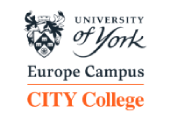International Relations and European Union Studies - MA

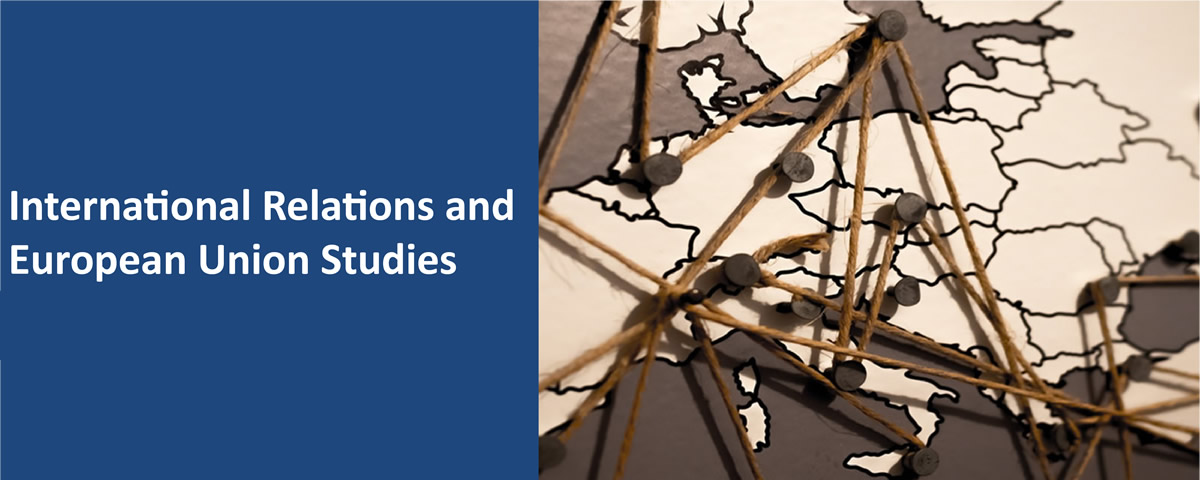
Degree title: Master of Arts in International Relations and European Union Studies.
The title is awarded directly by the University of York.
Duration: 1 year (full time) or 2 years (part time)
Language of instruction: English
Delivery format: Face-to-face on weekdays
Special tuition fees
funded by the South East European Research Centre (SEERC)
Students applying for this programme may take advantage of the special tuition fees offered to all applicants. The scholarship is funded by CITY College's research centre, the South East European Research Centre (SEERC).
For more information, please fill in the form above.
The programme
The programme offers students the knowledge and skills to critically engage with International Relations, EU public policy and global governance issues. The programme is based on three pillars: knowledge, skills, experience, and career opportunities.
-
Knowledge: The MA degree provides knowledge on International Relations and European Union Studies and highlights issues of EU policies and global governance. Students become familiar with the most important current socio-economic and political issues in the region and become equipped with the necessary knowledge to deal with new global challenges.
-
Skills: The MA degree offers an array of skills, including critical thinking, writing, presentation and communications skills, as well as employment skills, such as problem solving, crisis management and negotiation.
- Experience and Career Opportunities: Students have the opportunity to undertake an agreed internship with a company, NGO, international organisation or a politician in the local or national government as part of their degree.
In a highly volatile and ever-changing international environment where the European Union remains one of the world’s centres of socio-economic and political activity, knowledge on EU and global issues has become increasingly important to both academia and industry. The programme offers students the necessary knowledge and skills to critically engage with International Relations, EU public policy and global governance. Moreover, through the internship students have the opportunity to expand their network and gain valuable work experience. Graduates can pursue an exciting career in international organisations, NGOs, local government, journalism, business, consultancy and further academic degrees (PhD).
Why choose this course?
-
Degree from the University of York, one of the world’s top universities
-
Unique degree in International Relations and European Union studies combining academic knowledge and work experience
-
Optional internship with a company, NGO, international organisation or a politician in the local or national government
-
Enhancement of industry-related skills (political communication, negotiation skills, crisis management)
-
Highly qualified staff
- Study in an international and multicultural environment providing networking opportunities
Unique features of the programme
Internship opportunities
Students participating in the programme have the opportunity to pursue internships within various settings (i.e. companies, organisations, NGOs, politicians etc.). Through this unique learning experience students will practise their knowledge and skills, gain hands-on experience within a real working environment and build their portfolio towards a successful career.
In partnership with the Navarino Network (NN)
The programme is offered in partnership with the Navarino Network (NN) a strong network for the development of new thinking in regards to current and future policy challenges. The NN is an initiative of the Northern Greece Entrepreneurs Cultural Society.

More reasons why:
-
Supportive learning environment with a wide range of support services available to students
-
Individualised learning experience
-
Diverse methods of assessment
-
Strong links to society, the industry and our alumni
-
Seminars and workshops by renowned international experts
-
Free participation in sports and clubs activities
- Our state of the art library, the Information and Learning Commons (ILC) fully supports our students’ study experience
Watch Online - Webinar on International Relations by our Humanities Department
- Theories of International Relations
- EU Law
- Contemporary Issues in International Political Economy
- Political Communication
- European Institutions and Public Policy
- EU Enlargement and Challenges of Democratisation
- Research Methods
- Dissertation
And one of the following two modules:
Theories of International Relations
This module examines various theories of International Relations for the purpose of studying the international environment. The module highlights the core dividing lines underlying theoretical debates, as well as, the way they interrelate and how they can be applied to the analysis of current affairs. ![]()
EU Law
This module will develop student learning by focusing on the foundational legal aspects of EU law, as well as, rules governing the main processes of EU integration and decision-making. The module addresses the legal basis of the Treaties and the EU Institutions. Additionally it investigates the legal dimension in areas such as EU competencies, the four freedoms, EU Citizenship, Trade, Competition and EU Human Rights. ![]()
Contemporary Issues in International Political Economy
This module reviews the links between Politics, Economics and Society both at the domestic and the external sphere and it looks at the rise of non-state actors in the international environment, including Multinational Corporations, Non-governmental Organisations, illegal groups etc. Key themes in contemporary International Political Economy are explored, such as the nature of Globalization and its effect on the state, the globalization of the world economy, poverty, terrorism and environmental concerns through the study of the different structures in the international system. ![]()
Political Communication
This module reviews different theories and applications of Political Communication and the impact it has on managing political processes in today’s globalised world. Political Communication is investigated at the level of different actors, both official and unofficial, as well as, via different means, including social media. Global phenomena are analysed such as Fake News, Post-truth and ethics shaping Political Communication. ![]()
European Institutions and Public Policy
This module offers an overview of the most important aspects of the European Union Institutions and Public Policy making. Topics covered include EU integration, the institutional architecture of the EU and the relationship between the EU and its members and policy-making in the main areas of competence. ![]()
EU Enlargement and Challenges of Democratisation
This module focuses on the link between EU conditionality and democratisation and investigates the challenges arising throughout the process. Theories of Democratisation are examined as well as, debates and issues related to EU Conditionality, including corruption, social capital and civil society. Finally both EU members and EU Candidate members’ case studies are examined including, Eastern Europe, Southeast Europe, the Western Balkans and Turkey. ![]()
Research Methods
The module is designed with the purpose of supporting students in the research design and writing of their dissertation. The module will cover formulating the research question, choosing an appropriate methodology, understanding research ethics involved and receiving guidelines with regard to writing the dissertation. Students will be able to consult with their supervisors about the topic and methodology of their research proposal. ![]()
Dissertation
The dissertation is designed to both enable students to integrate knowledge and skills acquired across the degree programme, and to assess their ability to analyse a complex issue linked to International Relations and European Studies by conducting research. The Dissertation is linked to the Research Methods module. ![]()
Crisis Management
This optional module provides knowledge on the principles and application of Crisis Management. It is designed to offer students knowledge and skills on decision-making in relation to crises, as well as, practical, hands on experience by working on case studies related to the EU recent crises, such as humanitarian or defence and security crises. The module is optional. ![]()
Practicum
In this optional module, students will be able to undertake an agreed practicum with a company, NGO, International Organisation or a Politician in the local or national government as part of their degree. The practicum will take place during the 2nd semester. Students will have the option of choosing between the module Crisis Management and the Practicum. CITY College benefits from a wide regional network in the industry, the third sector and government via its numerous MBA alumni society, as well as, the Southeast European Research Centre (SEERC) project research partners in the area. The practicum will be offered throughout the region, not solely in Thessaloniki. ![]()
Entry requirements
View the application and admission requirements of the programme
How to apply
If you wish to apply for this programme you may view details of the application process.
Any questions?
For further information about the programmes, application process and admissions requirements, please contact:
acadreg
The Humanities Department of CITY College, University of York Europe Campus is dedicated to providing high quality education, informed by the latest developments in research and teaching. We offer a variety of programmes from different disciplines ranging from communication and digital media studies, to international relations, linguistics and literature, as well as translation and cultural studies. Our aim is to equip students with the scientific knowledge and 21st century skills needed to excel in their careers, but also to offer them various opportunities for hands-on practice, internships and volunteering. Our passionate and dedicated staff members have a reputation for creating a supportive environment where our students can grow into critical thinkers and highly qualified professionals.
More about the Humanities Department
Research at the Humanities Department
The academic staff of the Humanities Department
Contact the Humanities Department
Recognition and Careers
Accreditation and Recognition
CITY College is strongly committed to quality education and academic excellence. It is officially accredited and recognised by top international accreditation bodies. Read more
Degree and formal qualifications
The degree and formal qualifications our graduates receive.
For Greek graduates only: Recognition of degrees
Career opportunities
In a highly volatile and ever-changing international environment where the European Union remains one of the world’s centres of socio-economic and political activity, knowledge on EU and global issues has become increasingly important to both academia and industry. The programme offers students the necessary knowledge and skills to critically engage with International Relations, EU public policy and global governance. Moreover, through the practicum students have the opportunity to expand their network and gain valuable work experience. Graduates can pursue an exciting career in international organisations, NGOs, local governments, journalism, business, consultancy and further academic degrees (PhD).
Career, Employability and Enterprise Centre
The Career, Employability and Enterprise Centre, focuses on helping students to set attainable career goals. It offers advice on CVs and cover letters, and on how to effectively handle job interviews. Through career fairs, and different internship programmes, the department aims at constantly bringing students in contact with prospective employers.
Every spring we organize the Annual Career Fair presenting with an opportunity to get a first feel of job seeking. During the event students and alumni have interview opportunities with corporate recruiters and present their skills and abilities to potential employers. Large companies, organisations and multinationals from different industries across S.E. Europe participate every year in our Career Fair and offer employment and internship opportunities to our students and graduates.
More about our Career Services.
Contact the Career, Employability and Enterprise Centre at careers@york.citycollege.eu
The programme is offered in partnership with the Navarino Network (NN) a strong network for the development of new thinking in regards to current and future policy challenges. The NN is an initiative of the Northern Greece Entrepreneurs Cultural Society.
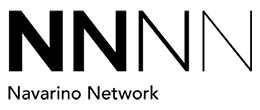
The programme is taught by highly qualified academic staff with extensive teaching and professional experience, and a strong research profile. The administration staff members fully support the processes of the department and provide a wide range of services to our students.
The academic staff & administration staff of the Humanities Department
